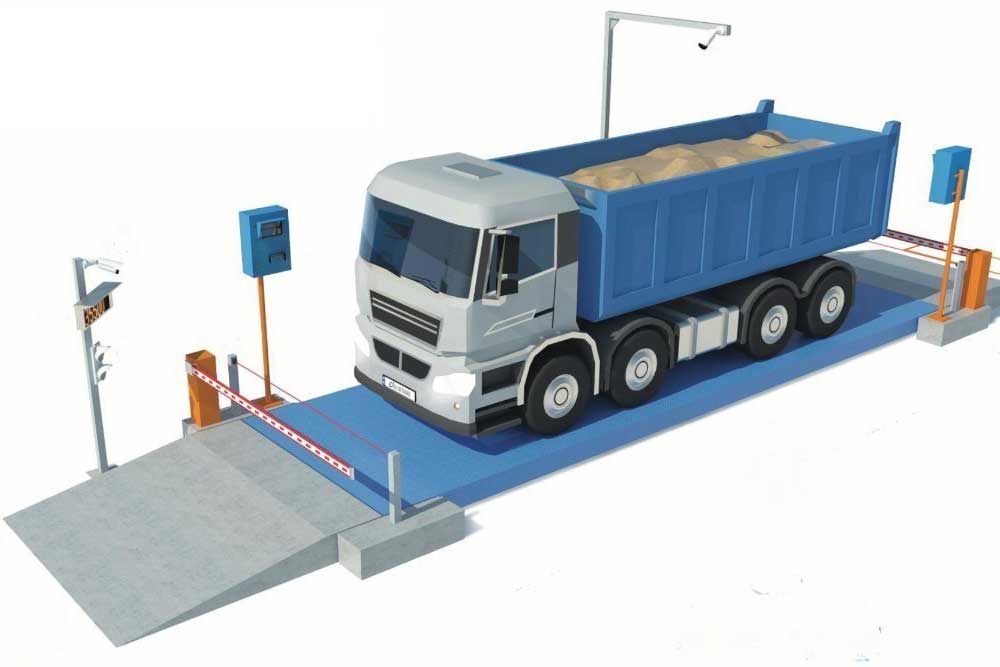
Truck weigh Scale stations: how accurate are they?
Measuring accuracy is a difficult job, but not impossible. When you realize that your certified truck scale is ensured by a regulatory agency, you expect that it will weigh accurately. What you cannot deny is that accuracy levels that are OK for controllers could be costing you an unsuitable measure of cash.
What is the truck scale accuracy?
Truck weight stations are utilized for tax purposes as well as to screen the weight of a truck to guarantee that it falls within the security rules that each state has set up for its street framework. While the most extreme permitted weight differs, the typical standard is 34,000 pounds. Truck scales are built to deal with a huge measure of weight.
How to check if the truck scale is accurate
Truck scales manufacturers build these scales to perfectly measure the truck and the loads they are carrying to see if they conform to the area's regulations. If you trade loads of material by weight, the accuracy of your scale means quite a bit to your business. Semi truck scales are utilized for this kind of use and could be compared to a sales register. It decides how much cash the purchaser is charged for a load of material. If the weight station doesn’t gauge the weight properly, you could be losing cash.
It is quite difficult to achieve perfect gauging accuracy. The goal is, in general, to get as close to that goal as is reasonably possible.To guarantee a healthy degree of precision, loads and measures specialists set maximum permissible mistakes for scales utilized in legal-for-teade applications. These scales are tested routinely to confirm that they are working according to the tolerance.
Testing is completed with certified test loads. Any variation between a scale's weight reading and the test weight put on the scale is viewed as a blunder. In the event that the blunder is more prominent than the guidelines permit, the scale should be adjusted to bring it within tolerance.
Legal tolerance of the truck scale
At any point, could you feel sure that a certified truck scale is weighing accurately? When loads and measures specialists set a lawful tolerance, what they mean is that a specific measure of blunders is permitted. In their eyes, a scale with the most reasonable mistake is basically as good as a scale that weighs accurately. In addition to the legal tolerance, your goal should be to be as accurate as possible in order to increase profits.
The accuracy of your truck scales for sale can have a major effect. In the case of a single load, the greatest reasonable mistake probably won't seem like a lot. For a business that gauges an enormous number of trucks, these kinds of blunders add up rapidly.
A normal truck weighed on your scale transports 28 tons of material and has a gross weight of 40 tons. The weight reading could still be 88 pounds below the real weight despite everything being within the legal tolerance. If you weighed 100 trucks each day with this measure of blunder, you would be losing a full load of material like clockwork.
How to prevent losses on truck scales?
The question of the hour is how do we prevent these losses? You could take a chance at re-calibrating the scale often enough to keep it near the target weighing accuracy. But the only problem is, all the service calls you will make will demand a lot of investment and cash.
A suitable solution is to put resources into a computerized innovation that makes it simple to achieve and keep a high level of weighing accuracy. A load cell involves an advanced computerized weighing innovation that beats traditional simple weighing systems. Surveys of field data from many truck scales show the capacity of load cells to hold a lot more tight accuracy levels than other load cells.
Advanced innovation requires less investment to certify on a scale, and the outcomes are more exact. Shift-adjusting a truck scale furnished with simple load cells can actually be time-consuming. Shift adjusting a truck scale furnished with load cells is a mechanized technique performed by the scale terminal in a little part of that time. Since rehashed changes are expected to tweak the scale, service experts can spend a day or more attempting to get closer to their objective accuracy.
A recently certified scale won't be guaranteed to keep up with its accuracy until it has gone through another round of re-certification. Ecological factors, for example, temperature, regularly influence weighing precision. As the temperature climbs and falls, the weight signal created by a simple load cell changes. In environments where outrageous temperature changes are normal, the gauging blunders can be huge.
Each load cell is furnished with a chip that tracks ecological circumstances and changes the load cell results to make up for them. The truck scale keeps up with weighing precision by giving built-in compensation for temperature change, zero change, hysteresis, linearity, creep, and vibration.
How to get an authentic performance
The load cell has an exceptional prescient diagnostics framework that continually screens the presentation of the whole load cell system. This framework checks network well-being and identifies any parts that could require review. If you compare these with simple frameworks, they have a bad habit of frequently concealing such issues for quite a long time.
A truck scale furnished with load cells is simpler to adjust to a more significant level of precision, keeps up with accuracy longer, and cautions you if proactive help is required. There is absolutely no greater method for safeguarding your benefits against weighing mistakes.
How Expensive Are Weighing Errors?
Try not to underestimate your scale's accuracy. A scale that isn't exact can offer costly material with each truck it weighs. You could be losing a critical amount of cash without knowing it.
